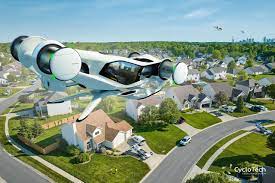
Breaking News
 The Prostate Cancer Test Dilemma
The Prostate Cancer Test Dilemma
 The Separation of Righteousness and Politics
The Separation of Righteousness and Politics
 Russian strike knocks out power in Kyiv FRANCE 24 English
Russian strike knocks out power in Kyiv FRANCE 24 English
Top Tech News
 How underwater 3D printing could soon transform maritime construction
How underwater 3D printing could soon transform maritime construction
 Smart soldering iron packs a camera to show you what you're doing
Smart soldering iron packs a camera to show you what you're doing
 Look, no hands: Flying umbrella follows user through the rain
Look, no hands: Flying umbrella follows user through the rain
 Critical Linux Warning: 800,000 Devices Are EXPOSED
Critical Linux Warning: 800,000 Devices Are EXPOSED
 'Brave New World': IVF Company's Eugenics Tool Lets Couples Pick 'Best' Baby, Di
'Brave New World': IVF Company's Eugenics Tool Lets Couples Pick 'Best' Baby, Di
 The smartphone just fired a warning shot at the camera industry.
The smartphone just fired a warning shot at the camera industry.
 A revolutionary breakthrough in dental science is changing how we fight tooth decay
A revolutionary breakthrough in dental science is changing how we fight tooth decay
 Docan Energy "Panda": 32kWh for $2,530!
Docan Energy "Panda": 32kWh for $2,530!
 Rugged phone with multi-day battery life doubles as a 1080p projector
Rugged phone with multi-day battery life doubles as a 1080p projector
 4 Sisters Invent Electric Tractor with Mom and Dad and it's Selling in 5 Countries
4 Sisters Invent Electric Tractor with Mom and Dad and it's Selling in 5 Countries
CycloTech unveils its CycloRotor-powered eVTOL air car concept

We've written plenty about these guys over the years. Operating out of Linz, Austria, CycloTech exists to propagate and commercialize a single idea: the CycloRotor propulsion system.
In the marine world, they're known as Voith-Schneider propellers, and these spinning barrels of thrust have "walls" made of wing blades, designed to tilt as the barrel spins thanks to conrods connected to a swashplate. This arrangement works a lot like the way helicopter rotors work – causing the blades to continuously vary their pitch as the barrel rotates, so that thrust peaks at a certain point in the rotation and quickly dies back down.
This arrangement means that you can run the barrels around at a more or less constant motor speed, and then direct thrust nearly instantly in 360 degrees – mainly downward, in this application, but it's just as easy for these barrels to fire thrust rearward, to accelerate you forward; forward, to effectively hit the air brakes; or even upward, if gravity's not going to accelerate you quickly enough toward the ground.

 Pathway to the stars
Pathway to the stars

